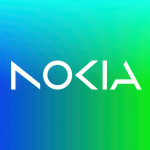Company Description
Company Overview
Nokia Corporation, a Finnish multinational establishment since 1865, has evolved into a robust player in the telecommunications and information technology sectors. Specializing in telecom equipment, network infrastructure, and innovative cloud and network services, Nokia plays a pivotal role in building both wireless and fixed-line networks. The company is renowned for its extensive research capabilities, its patent portfolio, and its proficiency in integrating advanced technologies for diverse network applications. Nokia continues to serve a wide array of customers, including telecom carriers, enterprises, and even defense sectors, by delivering secure, scalable, and interoperable solutions.
Business Segments and Operations
Nokia operates through multiple key segments to address the varied needs of the telecommunications market:
- Mobile Networks: This segment focuses on providing state-of-the-art equipment and services for public wireless networks, empowering telecom carriers to deliver high-performance mobile connectivity.
- Network Infrastructure: Specializing in fixed network deployments, Nokia supplies critical components and solutions for IP networks, optical networks, and even submarine networks, ensuring robust and reliable connectivity for critical applications.
- Cloud and Network Services: Catering to the evolving demands of enterprises, this nascent segment offers as-a-service platforms that streamline the deployment and management of network functions with enhanced efficiency and flexibility.
- Research and Patent Licensing: With a longstanding commitment to innovation, Nokia’s research division drives advancements across various technological domains. The company also licenses pivotal technologies, fueling progress in consumer electronics, the Internet of Things, and related sectors.
Technological Expertise and Industry Impact
Nokia leverages its profound technical expertise to deliver end-to-end solutions that address the complex demands of modern communications. The company integrates traditional telecom infrastructure with modern cloud-based platforms, promoting open and interoperable systems architecture. This strategy not only minimizes vendor lock-in but also facilitates rapid integration of new capabilities. Keywords such as wireless networks, IP networks, and open architectures are core to Nokia’s narrative, reflecting its deep engagement with evolving industry standards and technological innovation.
Partnerships and Advanced Use Cases
Nokia has established strategic collaborations that extend its technology into specialized fields. For instance, its military-grade 5G solutions have been integrated into advanced defense communication systems, underscoring the versatility of its products. These partnerships highlight Nokia’s ability to deliver secure, reliable, and high-performance network solutions across diverse sectors, including national defense and homeland security. This operational flexibility is supported by rigorous testing, adherence to commercial standards, and a commitment to continuous improvement in network performance and interoperability.
Commitment to Research and Open Innovation
At the heart of Nokia’s operations lies a strong focus on research and development. The company invests in long-term research initiatives that drive innovation in telecom and IT, ensuring that it remains at the forefront of network technology evolution. Nokia Bell Labs, a critical arm of its research division, has played a historic role in advancing global communication standards and continues to contribute valuable insights and breakthroughs. Moreover, Nokia’s open approach to network architecture and its emphasis on interoperability allow for seamless integration with diverse systems and technologies, further solidifying its position in the market.
Position in the Competitive Landscape
In a rapidly evolving industry, Nokia maintains a competitive stance by offering comprehensive solutions that combine hardware, software, and intellectual property. While competing within a crowded landscape that includes other global players, Nokia differentiates itself through a balanced focus on technological innovation, extensive R&D, and a diversified suite of networking solutions. The company’s deep expertise in both wireless and fixed network infrastructures, coupled with its capacity to innovate in cloud and network services, positions it as a resilient and adaptable participant in the technology sector.
Conclusion
Nokia Corporation embodies a legacy of innovation and technical excellence. Its comprehensive suite of products and services, spanning mobile networks, fixed infrastructure, cloud services, and critical R&D, enables it to meet the evolving demands of global telecommunications. With a commitment to open architectures and interoperability, Nokia continues to drive the transformation of network technologies, ensuring that its solutions are both advanced and enduring. This rich blend of expertise, experience, and authoritativeness makes Nokia a key case study in the field of telecommunications and network solutions.
Stock Performance
Latest News
SEC Filings
No SEC filings available for Nokia.

